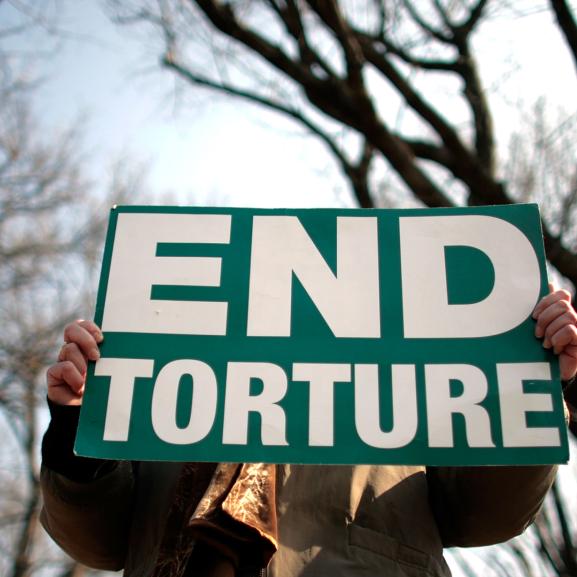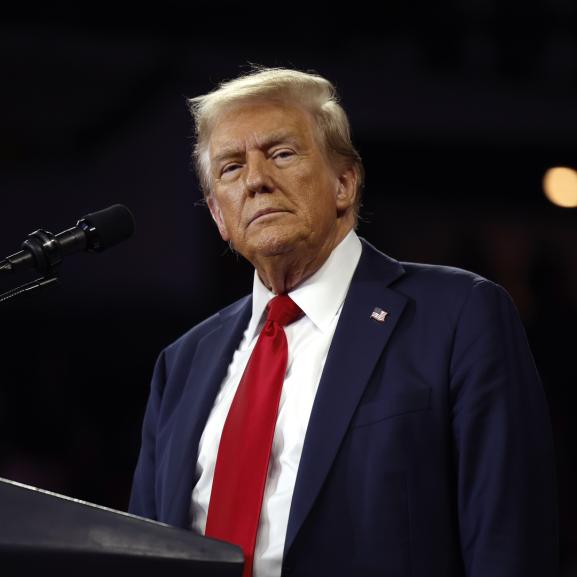Speaking out on sexual violence in conflict at UN General Assembly
Blog post by Survivors Speak OUT’s Kolbassia Haoussou, following his speech on preventing and ending stigma around sexual violence in conflict at the UN General Assembly this September.
Do you know what inspires Survivors Speak OUT members to continue to speak out about our experiences, even when it is difficult? Because our work is important, it can be exciting, and, unfortunately, it is endless with always more progress to be made.
And when the opportunity arises to speak at the UN General Assembly at an event to Member States on policy that you’ve also been instrumental in shaping, it doesn’t get much more exciting than that!
So on 18th September 2017, I had the privilege to represent Survivors Speak OUT (SSO) at the UN General Assembly in New York to launch a set of Principles for Global Action to tackle the stigma about the horror that is sexual violence in conflict. The event was jointly hosted by Lord Ahmad of Wimbledon, the UK Prime Minister’s Special Representative on Preventing Sexual Violence in Conflict, and Pramilla Patten, Under Secretary General’s Special Representative of the Secretary-General on Sexual Violence in Conflict.
On 18th September 2017, I had the privilege to represent Survivors Speak OUT (SSO) at the UN General Assembly in New York to launch a set of Principles for Global Action to tackle the stigma about the horror that is sexual violence in conflict.
The Principles aim to encourage increased will, resources and action from policy makers including a shared responsibility to for tackling and ending stigma globally. This is an important first step to shinning the light on a hidden problem and breaking down the impact of stigma that many of us in SSO know can last a generation. And for us, it has been important to be part of it.
It is not the first time that SSO has spoken at the UN General Assembly but nonetheless I was nervous because I was representing other survivors – I wanted to do a good job.
I was also honoured to be representing survivors and victims from Colombia, Kenya, Bosnia, Uganda, DRC, Burundi and Central African Republic all of whom I had come to know and had also contributed to the Principles. SSO played a crucial role facilitating and supporting a workshop to gather their contributions to the Principles in November 2016.
I was also honoured to be representing survivors and victims from Colombia, Kenya, Bosnia, Uganda, DRC, Burundi and Central African Republic all of whom I had come to know and had also contributed to the Principles.
I was joined on the panel by Lord Ahmed, Pramila Patten and Jeanine Mabunda, the Democratic Republic of Congo President’s Special Representative on Sexual Violence and Child Recruitment. It was my first panel with a representative from this country as well as one from a country that these principles were designed for – a country where sexual violence in conflict is rife. I was pleased by her openness about her country’s problems and her willingness to seek ways to address the stigma issues that survivors from the DRC face. She was keen to learn from SSO’s expertise about how best to communicate with survivors.
I sit on the Steering Board of the UK Foreign Office’s Preventing Sexual Violence Initiative (PSVI) and last year also met with other survivors, NGOs, experts and policy makers at a three-day workshop to discuss how we come together to meaningfully tackle stigma. That’s why it was important for me to be part of this initiative to launch the Principles for Global Action – because I and other survivors actively contributed to these Principles and made sure that our voices and views were informing future action.
One core recommendation of the Principles calls for the creation of safe spaces enabling victim/survivor networks to have a voice and be empowered including through establishing wider networks for survivors. But it is also important that there is a shift away from survivors being considered merely ‘victims’, only listened to for testimony, to experts who can shape appropriate responses to human rights violations.
One core recommendation of the Principles calls for the creation of safe spaces enabling victim/survivor networks to have a voice and be empowered including through establishing wider networks for survivors.
This is an important principle that must be backed up by action if any real change is to take place.
I truly believe that our network, Survivors Speak OUT, is a successful example of this survivor-centred approach. We are a network of survivors working with and on behalf of other survivors and our policy positions are developed based on our lived experience and insights of what meaningful change looks like. We then take this expertise and speak throughout the UK and abroad about torture including sexual violence, and its impact.
We must not be afraid to call our allies who help support us on these platforms. That’s why I called on Lord Ahmad and his staff at the Foreign Office to work with their counterparts at the UK Home Office to make sure that our testimonies or expert medical evidence on sexual violence is believed rather than disbelieved. This is in line with the International Protocol on Documenting Sexual Violence.
I feel strongly that there is more to be done to reach out, connect and empower survivors to be part of the solution. But our communities, our societies, our leaders must help us by shifting the shame from the survivor to the perpetrator – it is their shame, not ours.







